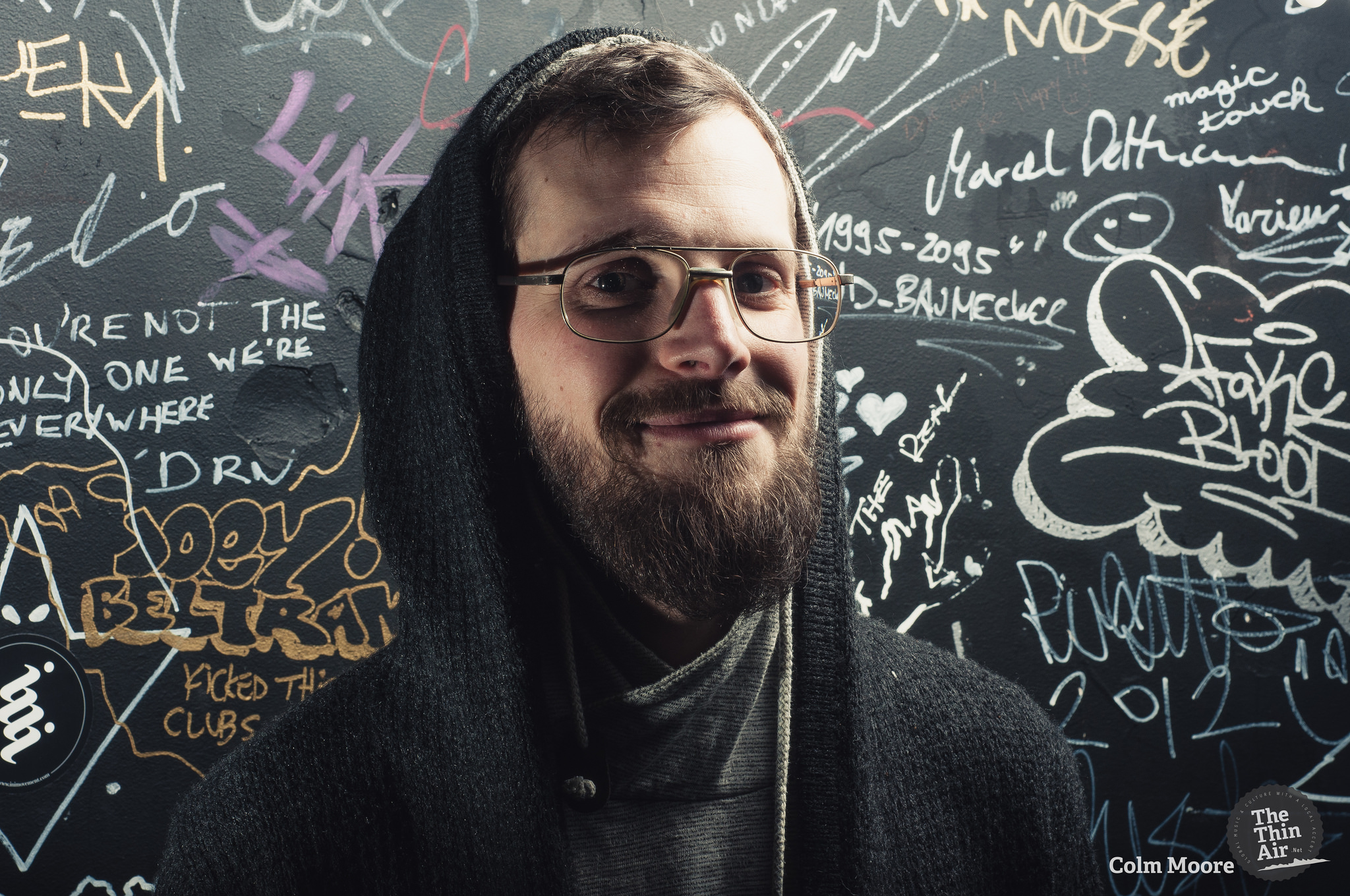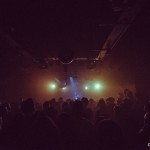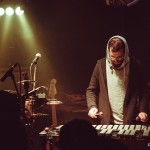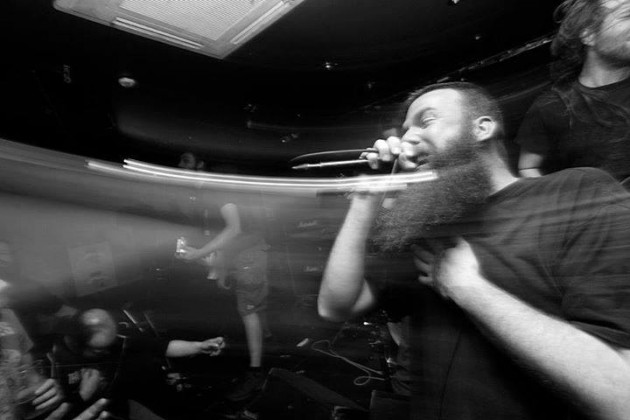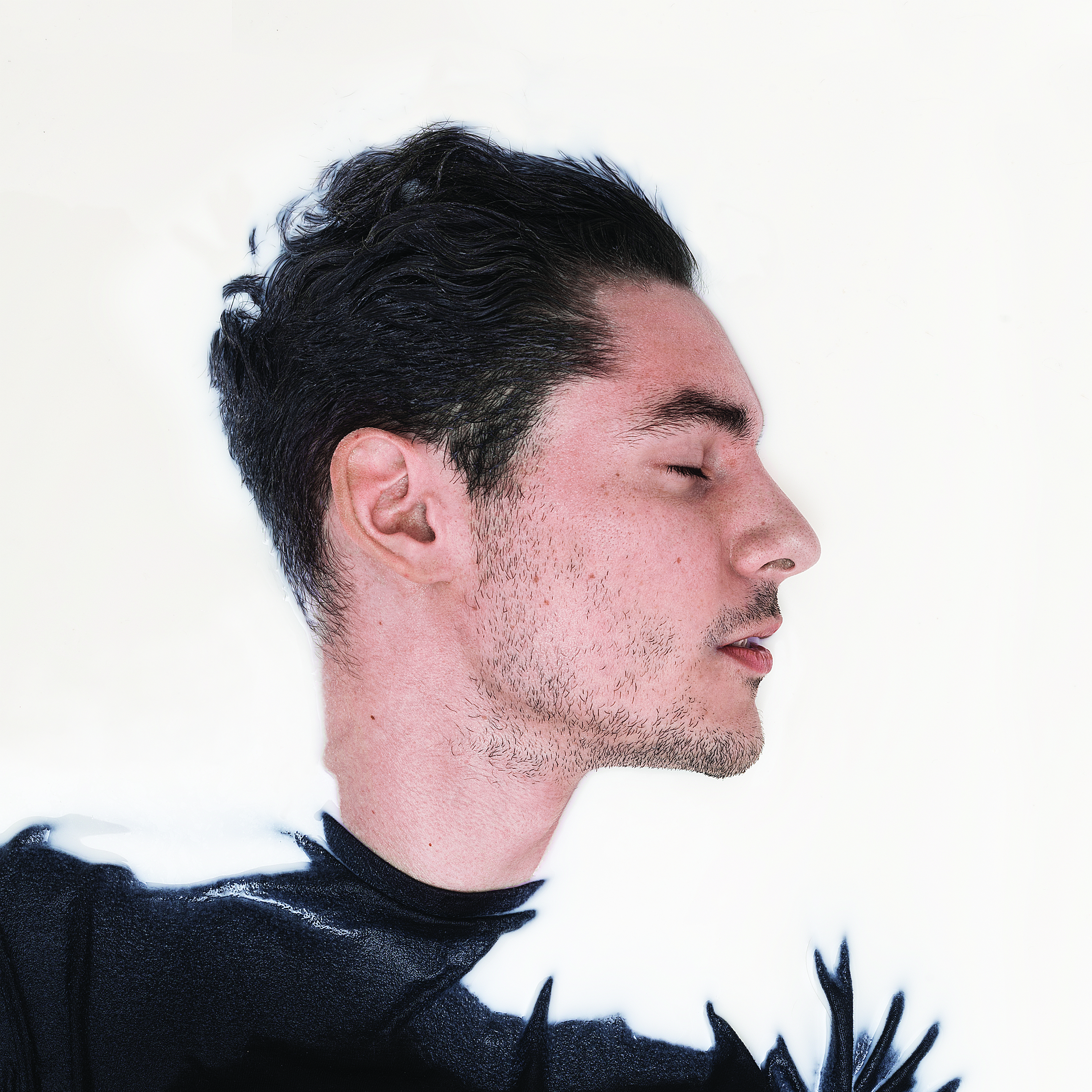BINKBEATS is an electronic music producer from Utrecht in The Netherlands. He quickly became known after his BEATS UNRAVELLED series with The Boiler Room brought him into the spotlight as he started reconstructing electronic songs he loved, one sound at a time. He is currently on his first tour and exploring the possibilities of his own original music, so our photographer Colm Moore sat down with him ahead of his 7th live show ever to have a chat and capture the live gig through his lens.
If anyone has ever seen your videos on YouTube the first thing they’ll notice is the amount of gear and unusual instruments you use. Have you always had an interest in exploring new sounds?
I think that through my education it has opened my mind to new sounds and what sound can be and since then I’ve been very interested in combining acoustic sound with electronics and see the possibilities. Percussion already has a lot of possibilities but combined with electronics, the possibilities are probably endless. There is so much to discover and I find it fascinating to explore this world of sounds.
Tonight is going to be your seventh gig, so I can imagine live shows are very different to the studio work you do. How are you finding the transition from studio to live?
Yes, live shows require a lot of preparation and studio work is, I guess, quicker. Stuff in the studio mostly has two stages; first you demo something and then if I want to record something I can just record it very quickly and get a rough idea down and then afterwards you can start to crystallize the parts and analyze what you have done to get it perfect. Like ‘that should be this note, or this sound’ and then you can record it perfectly with as much time and takes as you need. Then with live shows, well you also have a lot of stages, but we’re still tweaking the show from night to night and learning as we go. Normally with a band you start off in small cafes and small venues, and you build years of experience that way, but with this everyone had really high expectations when we brought this show to the stage. Kind of like jumping into the deep end.
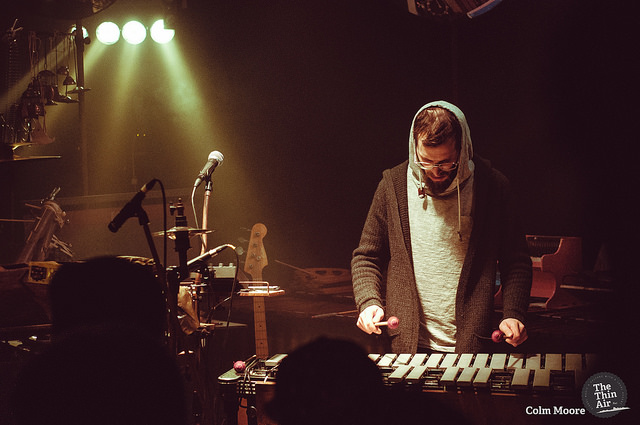
How are you finding being on stage with hundreds of people watching opposed to a few cameras in your studio?
I don’t find it too intimidating as I played as a session musician in bands over a period of 8 years, I think, so being on stage isn’t new to me, but being on stage all alone was new to me, so it was nerve rattling at the start but it’s settling down now, I’m getting more comfortable now. It’s definitely very different, but that’s good.
I suppose you’re most well known for your ‘BEATS UNRAVELLED’ series on YouTube. When you cover other producers songs are there any particular traits in a song you look for before you cover it?
My main concept is to cover electronic music because rock music has been covered so much, and electronic music hasn’t been covered before, unless you see it being covered by a band, but then it also sounds like a band. So I try to cover electronic songs as close as possible to the original with acoustic instruments and then maybe add a little bit of my own twist. For example in the track Without You by Lapalux I added a vibraphone as the track sounded fitting for one. In the original there was a synth-ey sound and I thought ‘I won’t be able to make that sound, so I’ll find another different sound that is also appealing for the song’.
At the end of the day I need to like the song before I cover it because this is a project of my own and has been for a very long time, so I thought I should be doing songs I really love and care about. It also needs to be possible for me to re-create with sounds because I cannot play saxaphone or violin etc.. so I’m not going to cover songs with a lot of sounds like that.
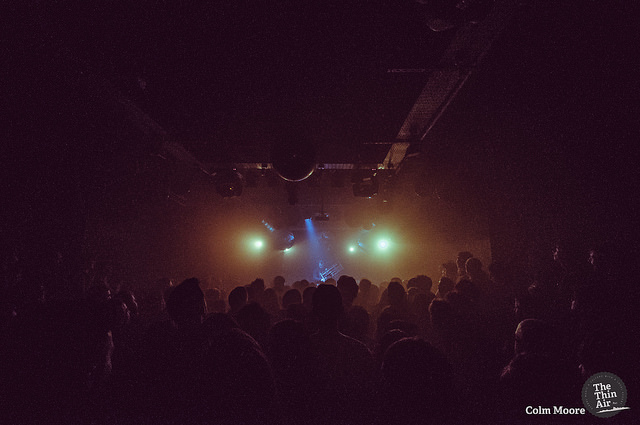
How different do you find covering songs to writing your own material?
Very, very different. If you want to cover a song, all the material is already there and you just need to copy it or come close to it. When you’re writing your own stuff you have nowhere to start… or everywhere to start!
Most tracks started off with me fiddling on some instrument like a bass guitar and then layering stuff on top of that and then getting the song structure from there. I think it’s how most producers do it. It’s very different to how singer-songwriters do it, as they have a chord scheme, the lyrics, and thats the basis for their song. Then they orchestrate it with the band. For me it’s all about finding sounds and patterns that connect to each other and making the song out of that. Slowly the notes will start to come out and the song will evolve.
Are there any procedures you would like to collaborate with at the moment? Have you had any offers from anyone?
Since the YouTube videos got quite well known I get lots of emails from all kinds of people and musicians who want to collaborate. Right now I just want to see how far I can get on my own and really see what is possible and what I’m capable of, but for sure I’d love to collaborate with people in the future. I don’t really have favorites.. well I do, but I wouldn’t choose to collaborate with someone because their a personal favorite. Everyone has something different you can learn from and a different take on what music should sound like or how they approach it, so there are lots of people I guess, and I definitely hope to work with them in the future, but I don’t have a shortlist or anything like that (laughs).
Finally, out of all your instruments (currently over 50 on stage with him), which is your favorite.
Ah, that is a question that everyone asks! I don’t know really, I guess I’m into gongs, oriental gongs. Thai gongs especially, they have a really warm deep sound. All kinds of bells too. I collect lots of bells but it’s actually really hard to use them in music because every time I want to incorporate it into a song I’m never really happy I’m doing them justice or sure if they’re working too well, but you’ll see yourself tonight, there are some bells in there.

